
Strasser Guitars Luthier Interview 1 Background
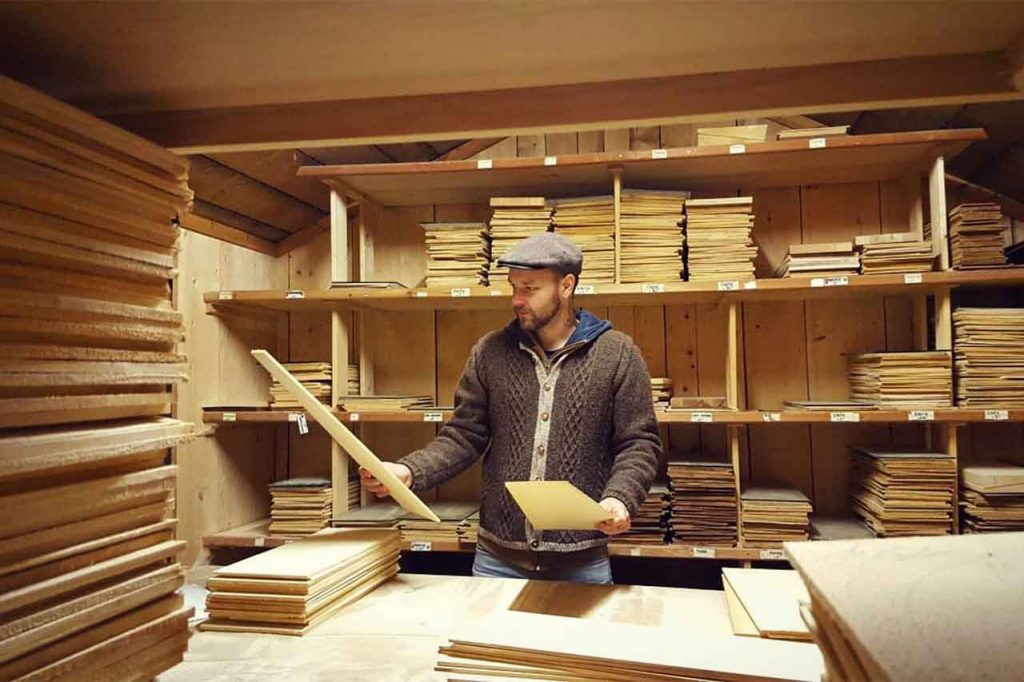
Strasser Guitars Luthier Interview 1 Background
Strasser Guitars Luthier – For those who don’t know you yet, can you tell us about your background? Did you go to Luthiers school? Did you follow a training with already established Luthiers? And, if you don’t mind my asking, what did you do before embarking on this adventure? Were you a musician before becoming a luthier? Or did you do anything else? And, by the way, do you still find time to play music with your work as a Luthier ?
Before I started building guitars I was learning and playing electric guitar.
I started to get better and practiced very much with a cheap guitar of a friend. So I decided to get me a new guitar. But I was young (I guess at the age of 15) and had not that much money to just buy one.
So I thought it would become less expensive if I built it on my own.
With my uncle, who already built an electric bass in the past I ordered wood and parts and build my first guitar in my bedroom with all the tools my parents got in their little backyard workshop.
In the end it was very expensive but at least i got a guitar that was playable.
That was the moment when I fell in love with this beautiful craft and it became my Hobby.
By that time I decided to start an apprenticeship as mechatronics engineer and finished it within 3 years. After that i emmediately wanted to start an apprenticeship as luthier and luckily I was able to work and learn at Armin Hanikas Workshop (You can discover his profile on Luthiers.com by clicking here). In Germany Hanika guitars are well known classical guitars as you might know.
I spent 6 years there, finished the apprenticeship and became a master craftsman at guitar lutherie.
After that I worked some time at Andreas Rall Workshop. He is also supplier for great luthier Tools and is away 1km from my Workshop.
In 2018 I started to work at my own Workshop. Because I can’t afford a Living from guitar Building and repairs yet, I have to work as mechatronics engineer as my first Job.
There is almost no time to make Music but I try to Play guitar as often as I can.
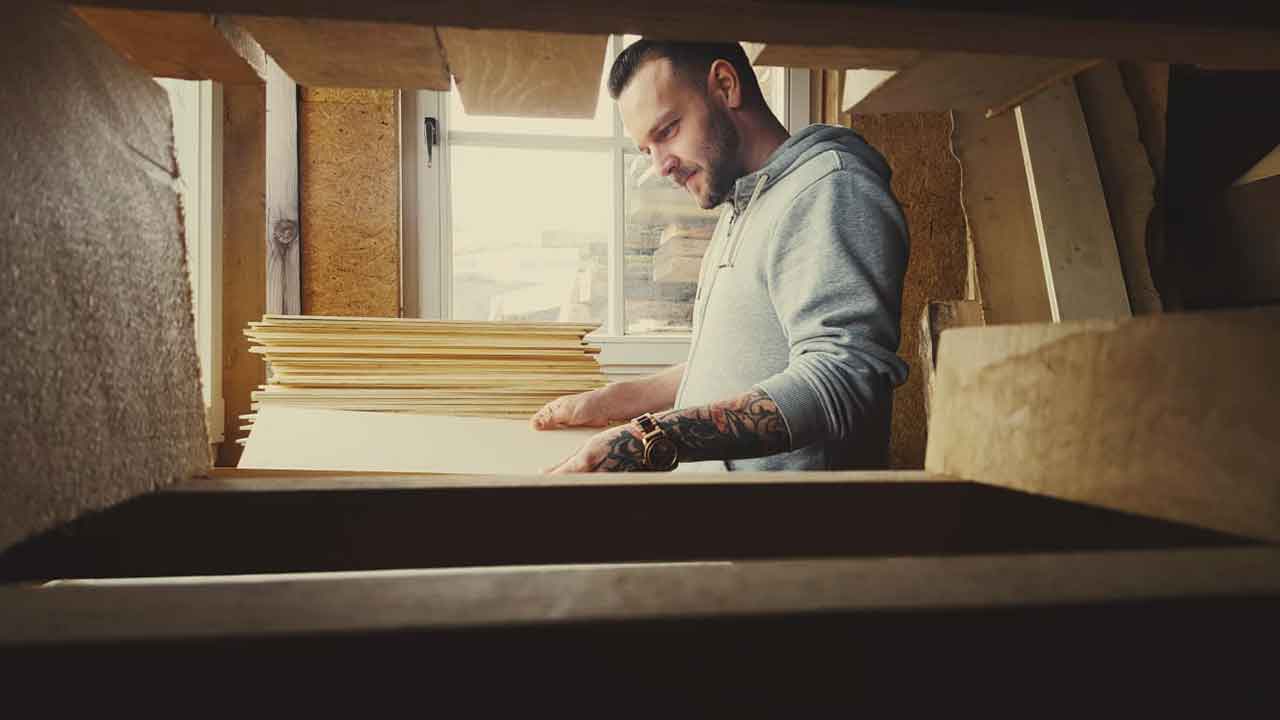
Strasser Guitars Luthier – Apart from creating custom instruments, we know that you do all types of repairs and maintenance on guitars and basses, can you also take care of other types of plucked and bowed stringed instruments?
Yes, there also were some Zithers or a harp for example.
I also had a real Charango from Mexico that was very interesting. I try to repair and maintain everything that has strings and is plucked.
Bowed Instruments I leave to the real specialists.
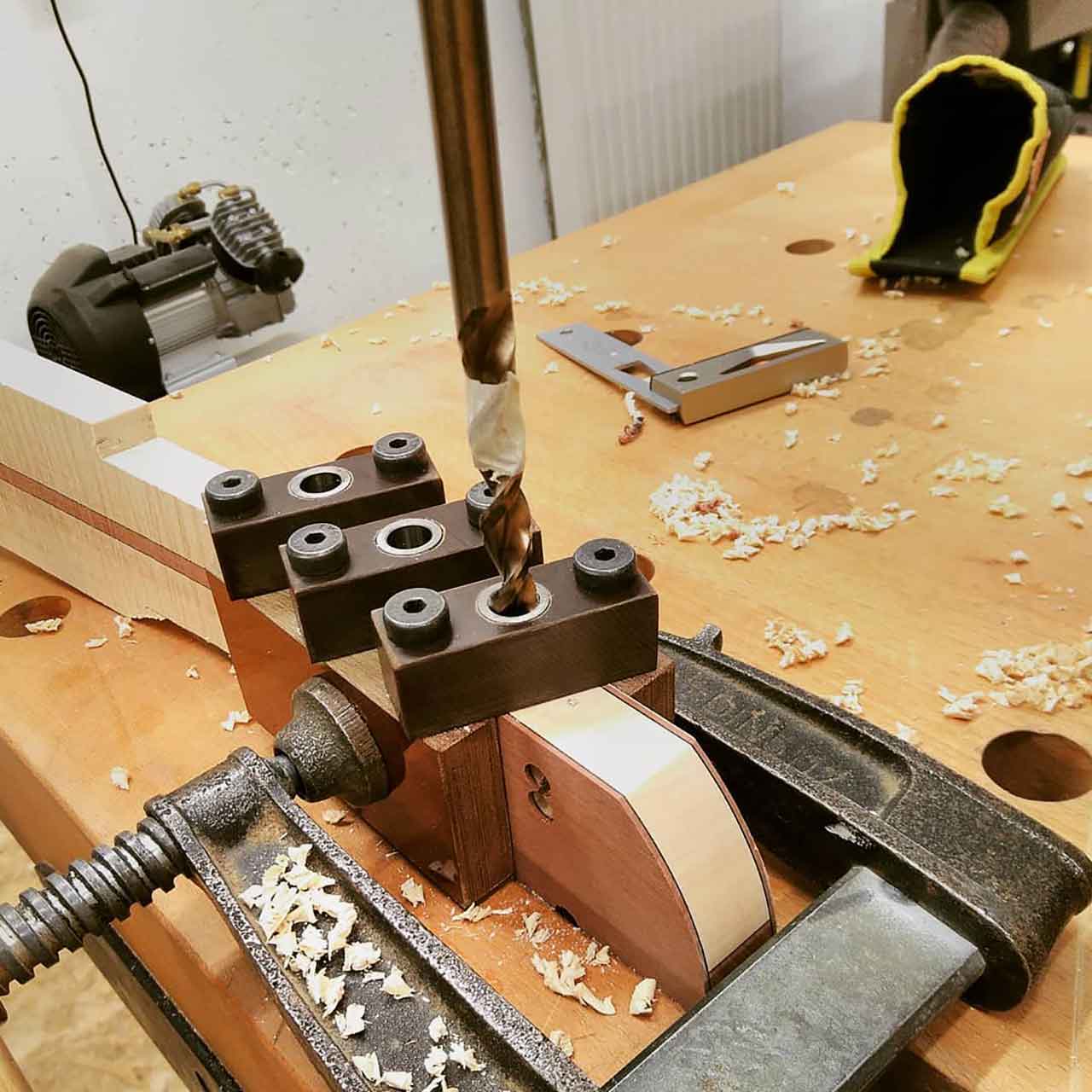
Strasser Guitars Luthier – Can you tell us about your current flagship models? Do you have a range that you do regularly? Do you also make unique custom models ? How did you proceed to create them ? What were your choices and your creation process? What kind of musicians do you cater to?
I don’t have some kind of flagship.
I build what comes to my mind or I do custom models for customers.
I have my own classical guitar model and I think the fanned fret classical guitar is the one I’m really proud of.
There is a real good gipsy guitar in my portfolio as well.
I’m also working on my own steelstring models at the moment. I try to develop changes in my building while I am in the process of making a new guitar. Sometimes I have Ideas before and then try to make them come true and sometimes it develops in the process of building.
Also I try to bring my ideas to CAD programs where I can change shapes directly and see how it could work. I use it as an additional visual support.
I concentrate on acoustic instruments with the focus on classical guitars and steelstrings. Every style is welcome.
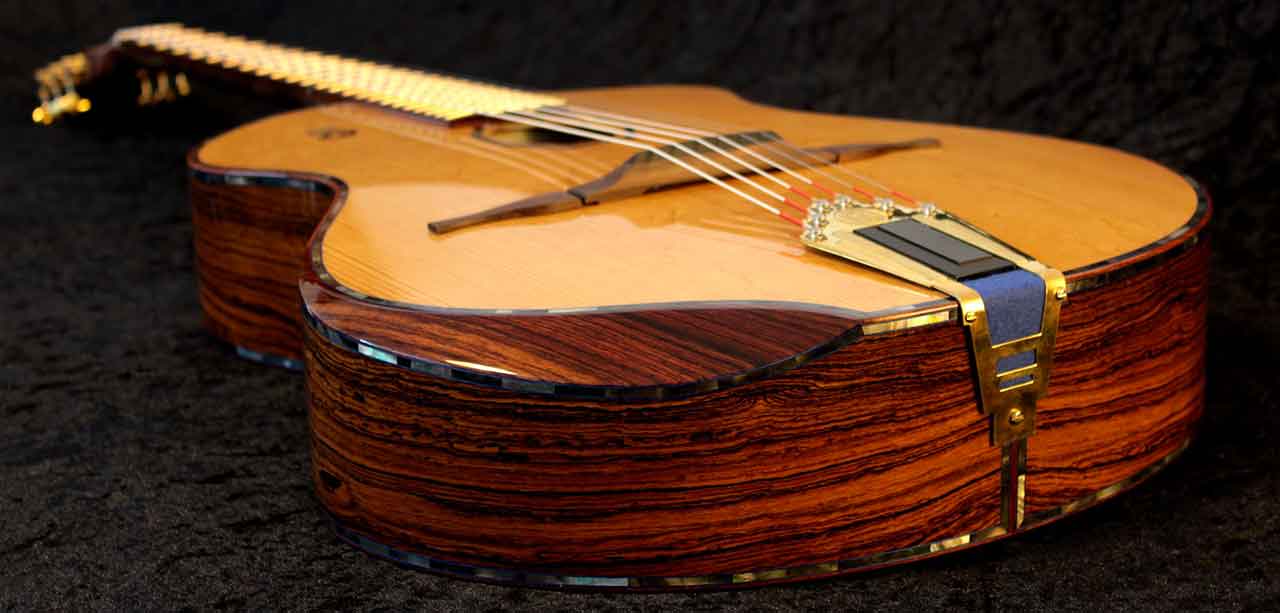
Strasser Guitars Luthier – Computer has become everyone’s daily life, regardless of their profession. Do you use special computer tools in the field of Luthiers? Can you tell us about them?
I use CAD Program Rhinoceros as a visual support and to create all the parts around Building such as molds for bending the sides.
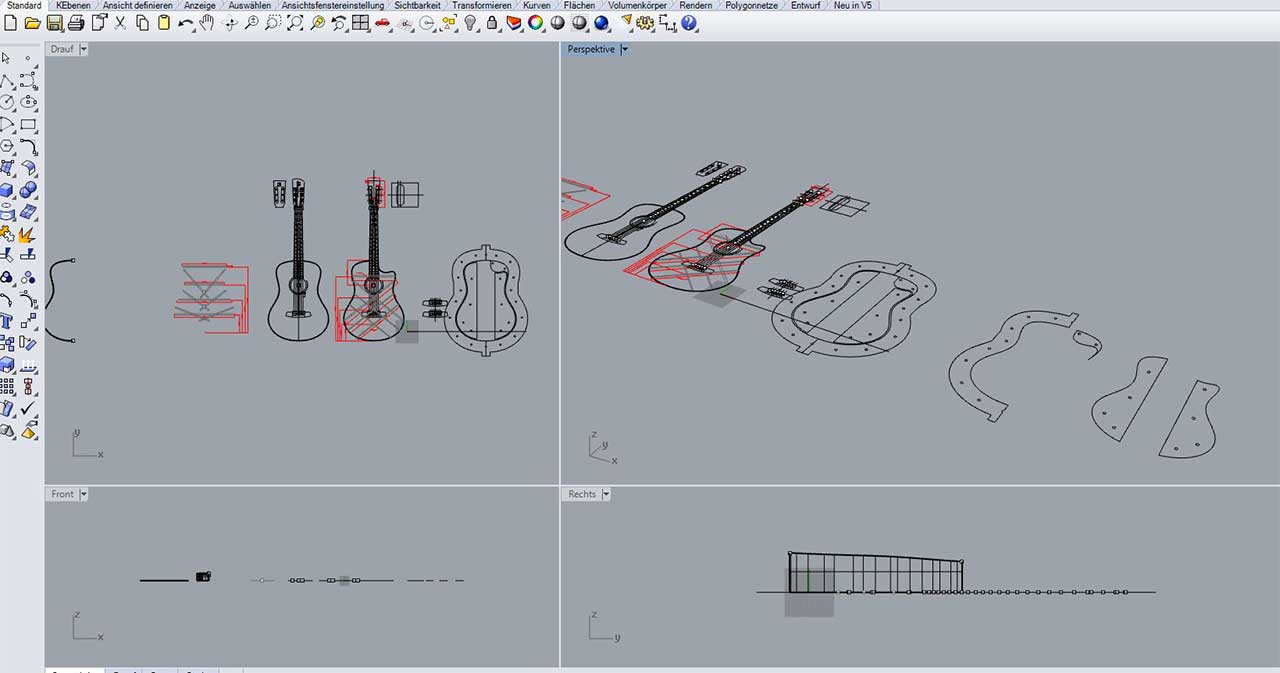
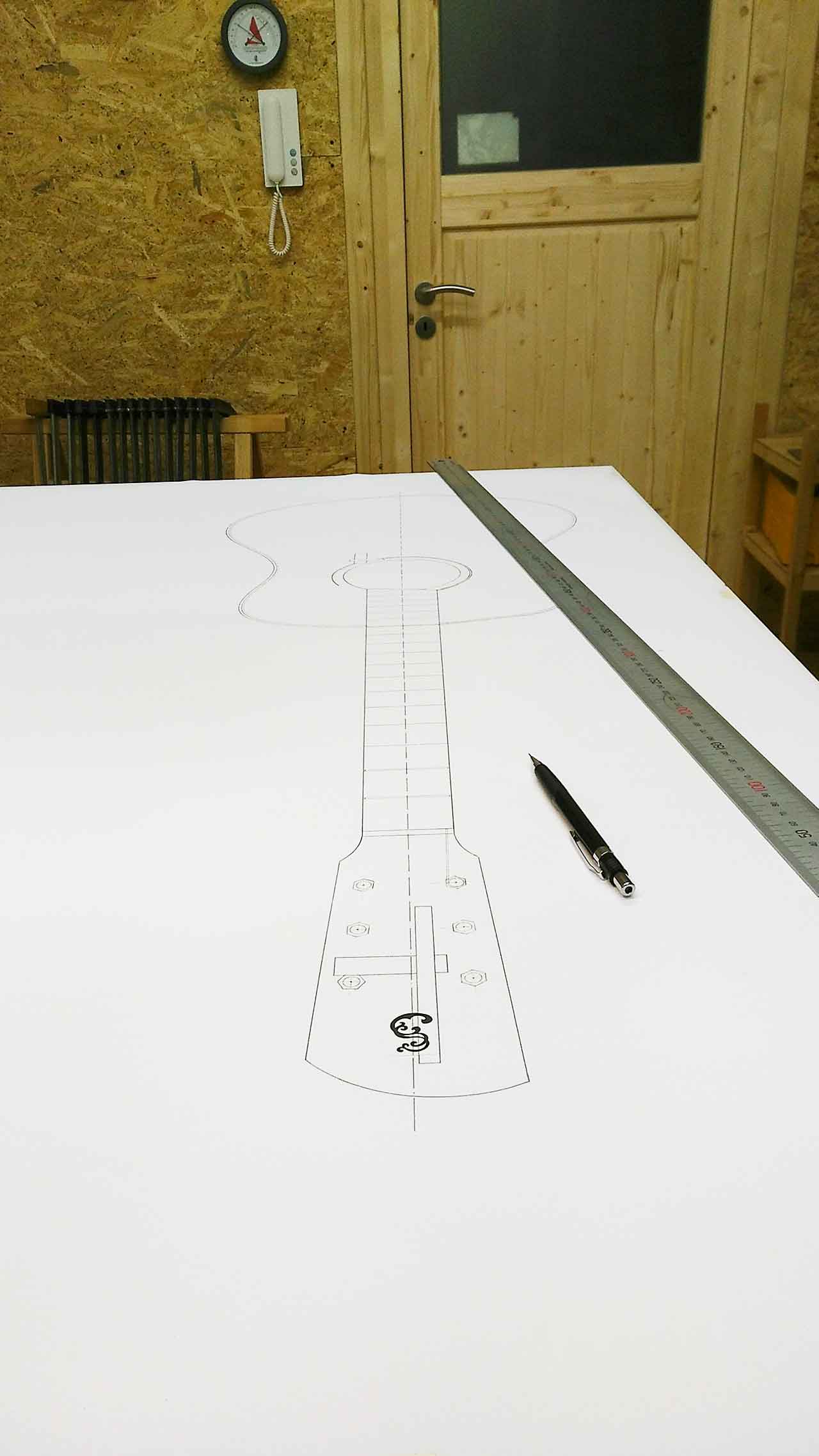
Strasser Guitars Luthier – Those who know you know that you are a great lover of beautiful woods, how do you help your customers to choose the woods of their future guitar in relation to the sound they have in mind? Can you easily find wood in your networks? If so, can you name some of your suppliers ?
As I try to only or primary use local wood, most of the customers don’t really know about the characteristics of woods like apple, plum, yew or chequer tree.
Those are as beautiful woods as the exotic woods that are traditionally used in guitar making.
I try to find out how the musician is acting with an instrument, is he/she strumming or picking, how hard is the attack and what are the customers preferences in the sound of a guitar and what does he or she like to see.
The visual aspect plays a bigger role than most of the people think. I try to get as much information as I can to choose from the woods I have.
Most of the time I am looking for whole trees or logs to cut them myself into the pieces I need. Not long ago I bought 2 beautiful logs of cherry for back and sides but also for necks.
It takes very long for the wood to dry before I can use it but I think it’s worth the waiting.
I still have some exotic woods from my beginnings that I am still using but I don’t buy anything in that direction anymore unless I know it’s from a sustainable source.
The spruce tops are hand picked at local tonewood suppliers like Kreuzer in Mittenwald/southern Bavaria or Kollitz/franconia.
Or for really high quality tops the best address is tonewood Switzerland by Andrea Florinett (Florinett AG, Tonewood Switzerland on Luthiers.com).
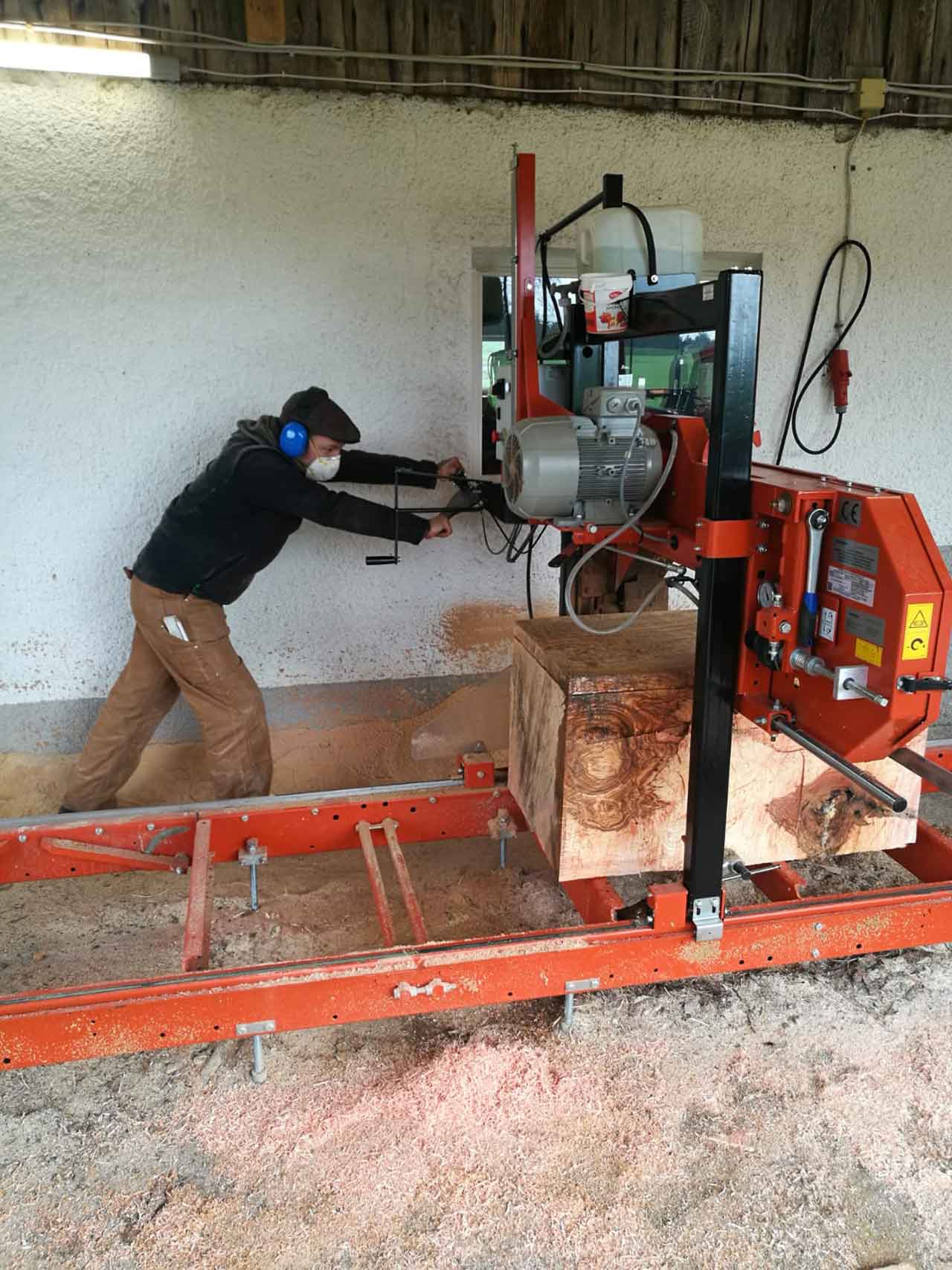
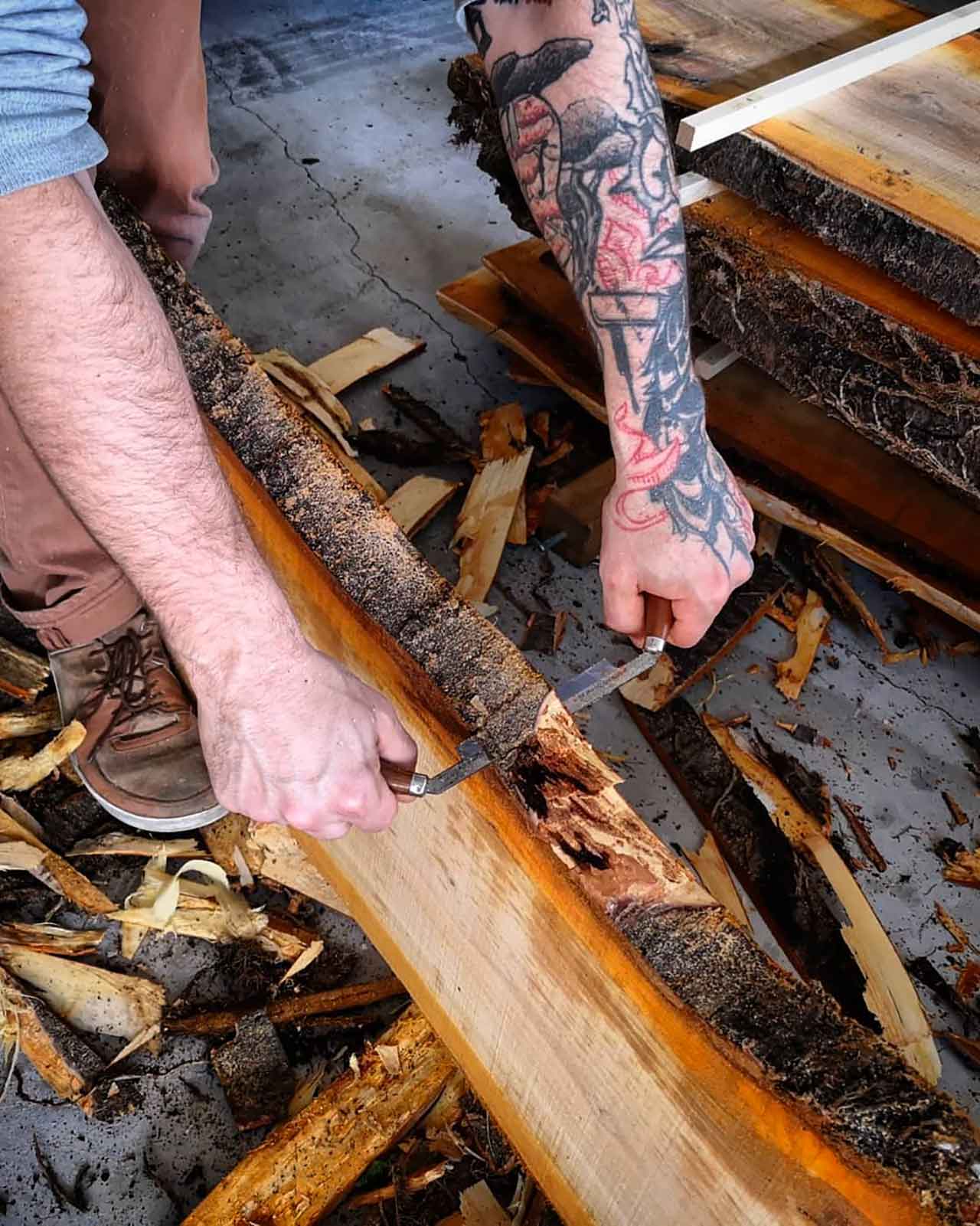
Strasser Guitars Luthier – There is a huge selection of aftermarket parts. Do you work with regular suppliers or are you always on the lookout for new suppliers who can offer you something new? Do you have any examples to give us?
Most parts I need for repair work or new guitars I get from Andreas Rall Guitars and Tools.
He makes some very high quality tools and supplies the very majority of parts for guitars.
They are not far away as well, about 40 km from my workshop. Otherwise I use tuners from Rubner or Schaller.
I try to get all I need from suppliers near my shop to avoid long distance shippings.
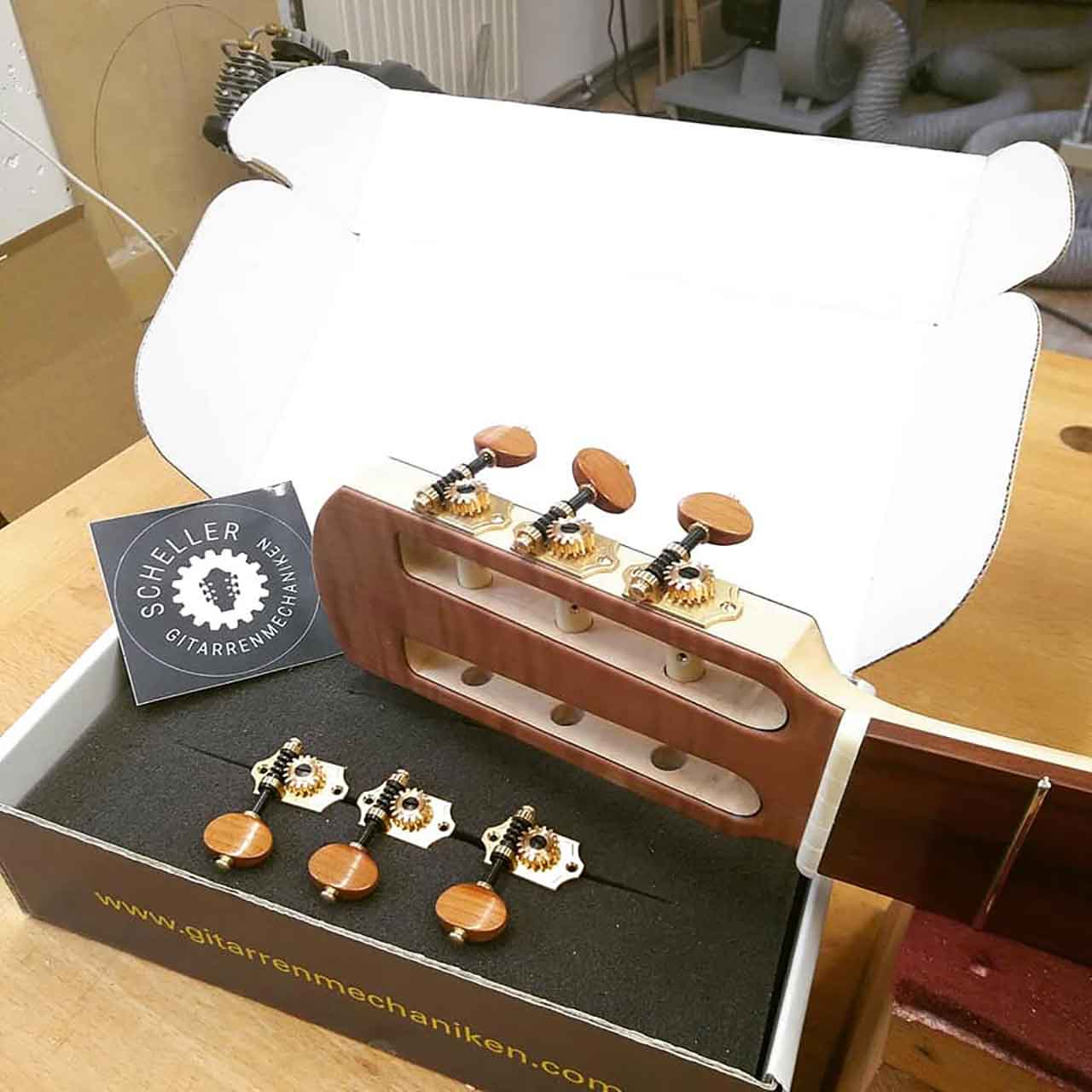
Strasser Guitars Luthier – When you can’t find the parts you want at your aftermarket suppliers, do you ever create parts yourself or hire specialized craftsmen? Can you give us some examples?
Sometimes I create my own jigs and templates.
When it comes to moulds I draw them in CAD and give it to someone who can mill it on a CNC machine.
Strasser Guitars Luthier – How do you choose the pickups for your electric instruments according to the demands of your customers? Do you have any secrets or wiring habits? Have you ever had any very special requests, or requests that seemed strange to you from customers with special needs?
I’m not into pickups and winding. For acoustic guitars I often use L.R. Baggs and I like MI-SI Pickups
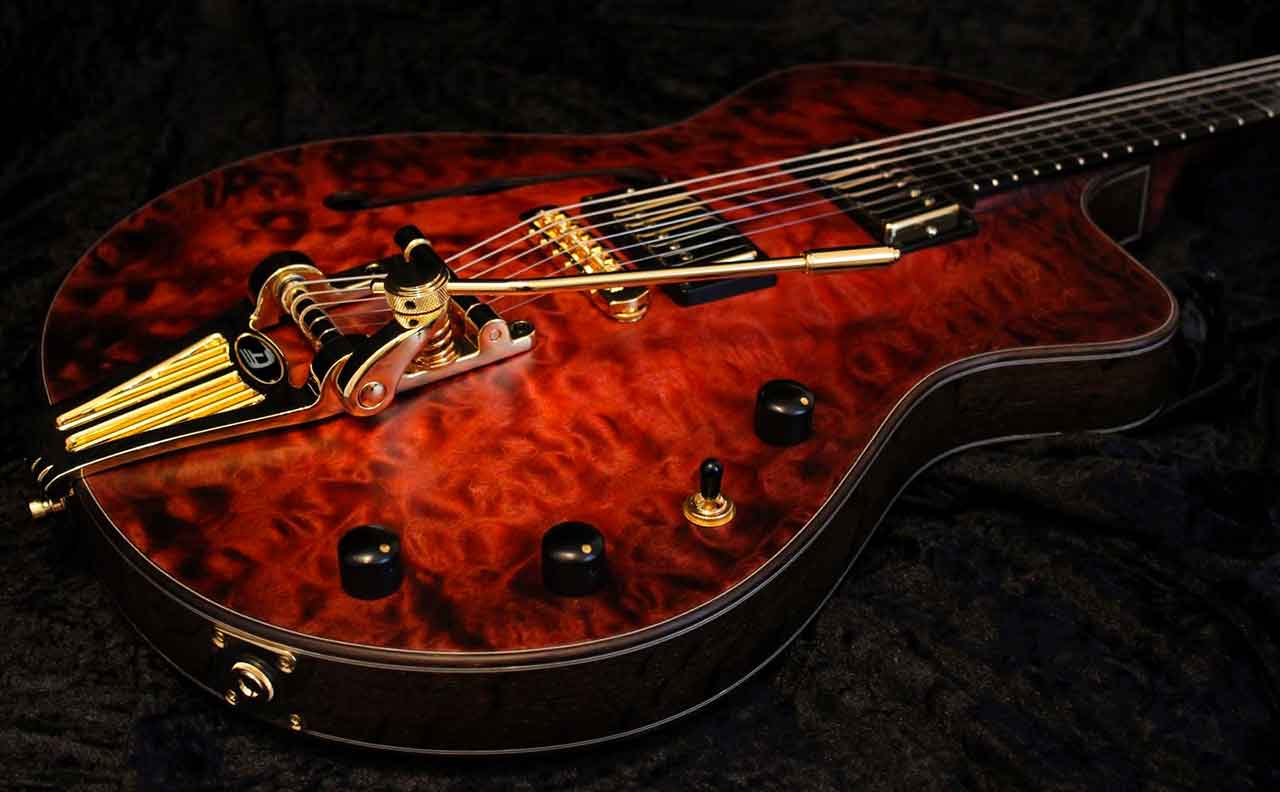
Varnish… Nitrocellulo, P.U (polyurethane) or “pad” varnish? What are your choices and why?
For High Gloss and Matt finishes I use PU laquer. Classical guitar tops are finished by hand with shellac. Sometimes I just use oil. I really love the matt surface feel and very thin layers of coating.
Oil gives a very natural look and feel to the wood and creates a very sleek connection between the player and the instrument.
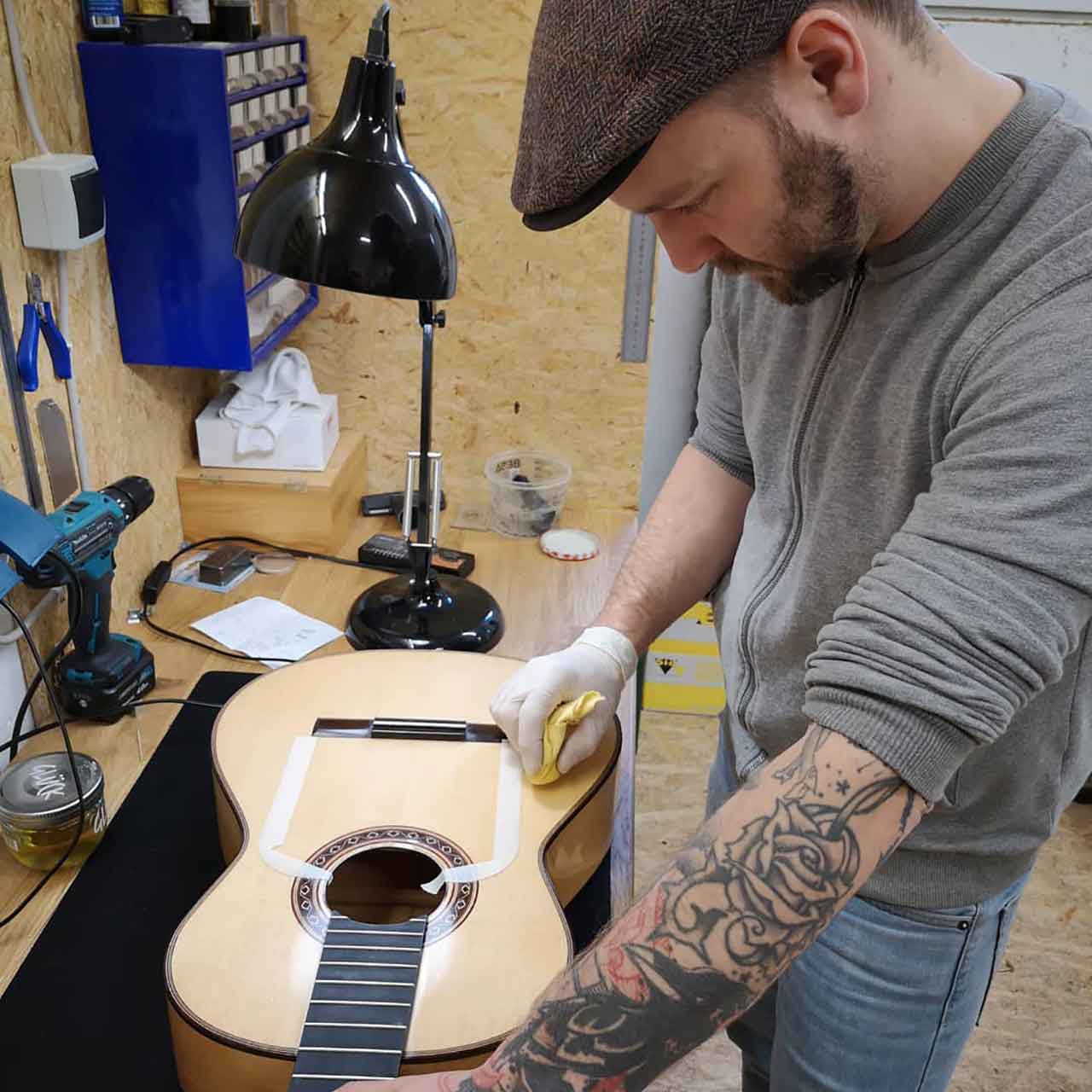
Are you also interested in making amps and effects? And, if not, are you going to go in that direction like many other luthiers ? Or do you prefer to leave this part to others? (If you know the names of friends who are in this field, can you name some of them? 😉 )
I’m not interested and don’t want to go that direction. It’s fulfilling enough to build fine acoustic guitars 😉
Do you have any advice for future young luthiers? Can you give them advice on training courses? Do you know of any special schools?
Don’t follow every trend in the business!
Learn old and new techniques and combine them with your own inspiration. Don’t always copy the old masters but respect them.
There are great schools here in Germany. You can take an apprenticeship in Klingenthal or in Mittenwald.
There also is a great opportunity to study Musical Instrument Technology (Bachelor) in Markneukirchen.
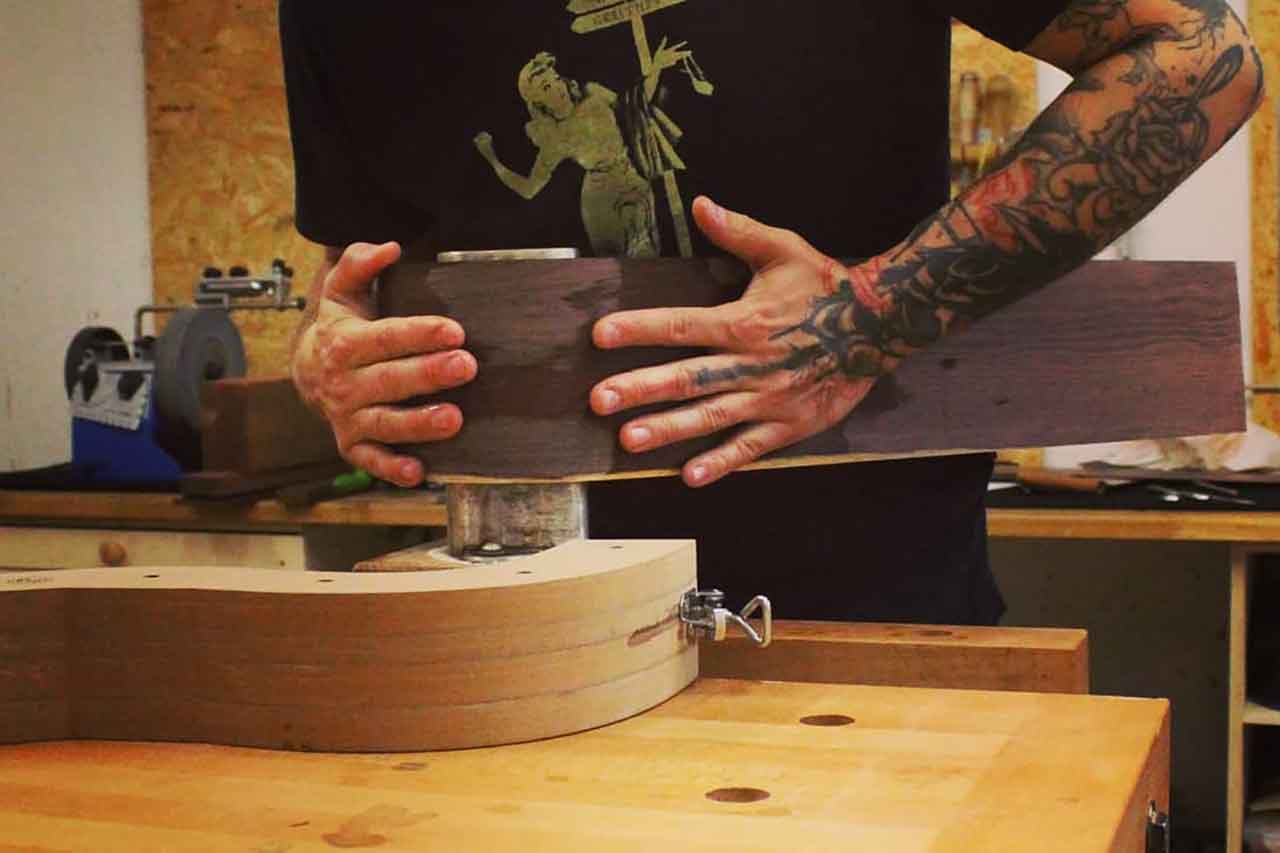
The profession of Luthier is a trade that requires a significant material investment to start its activity. What would you advise a young luthier to buy to start? The minimum required? And, the maximum to be in a comfortable working environment?
Start with what ever you have!
Otherwise get tools on the way of making. In my opinion the most important thing is to start.
Go ahead and read books or talk to luthiers if you have the chance.
Making mistakes is very important.
I guess you should feel comfortable with every situation. Some only work with hand tools, some use a lot of machines.
Everything is alright as long as you have fun and enjoy what you do!
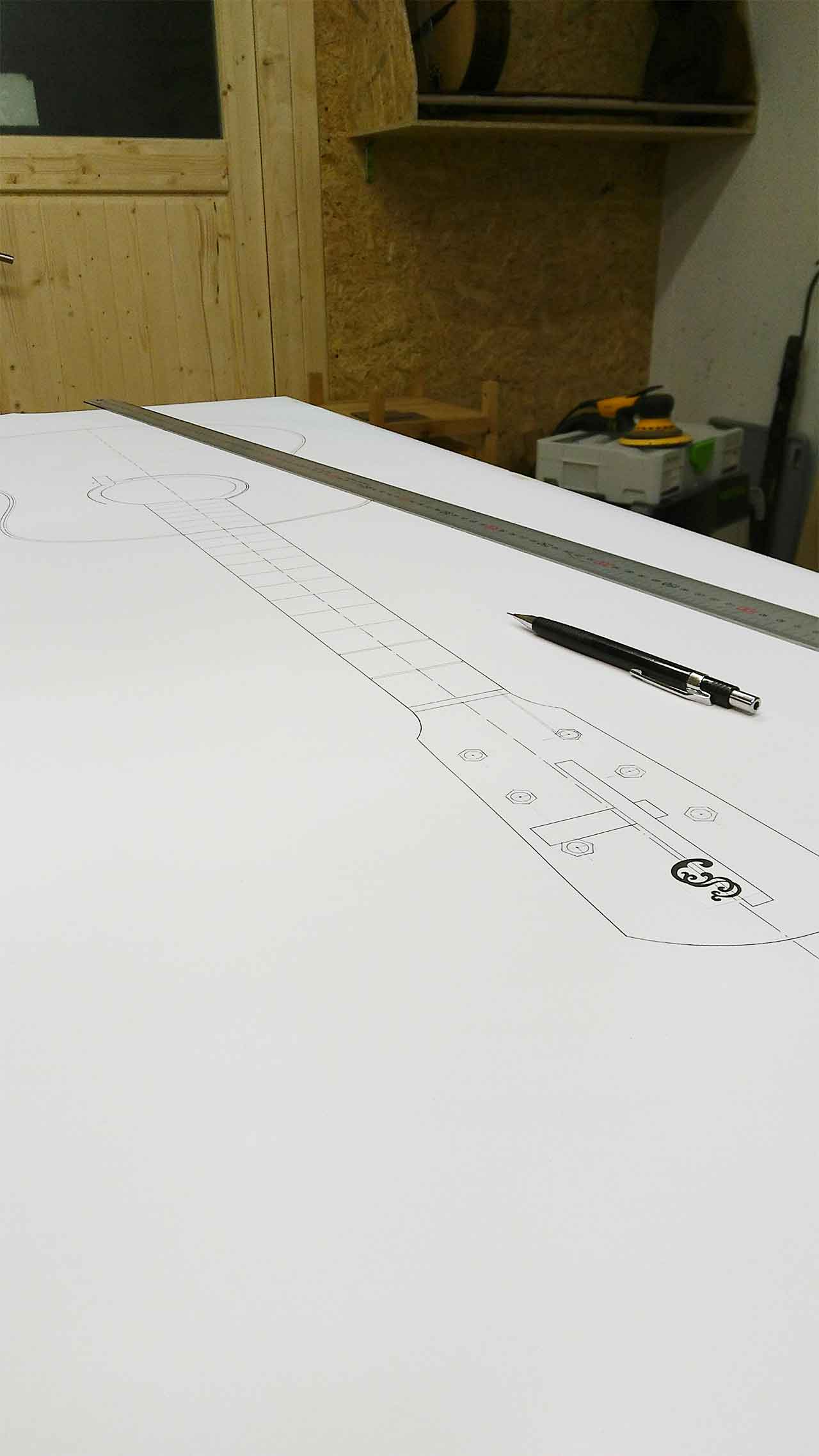
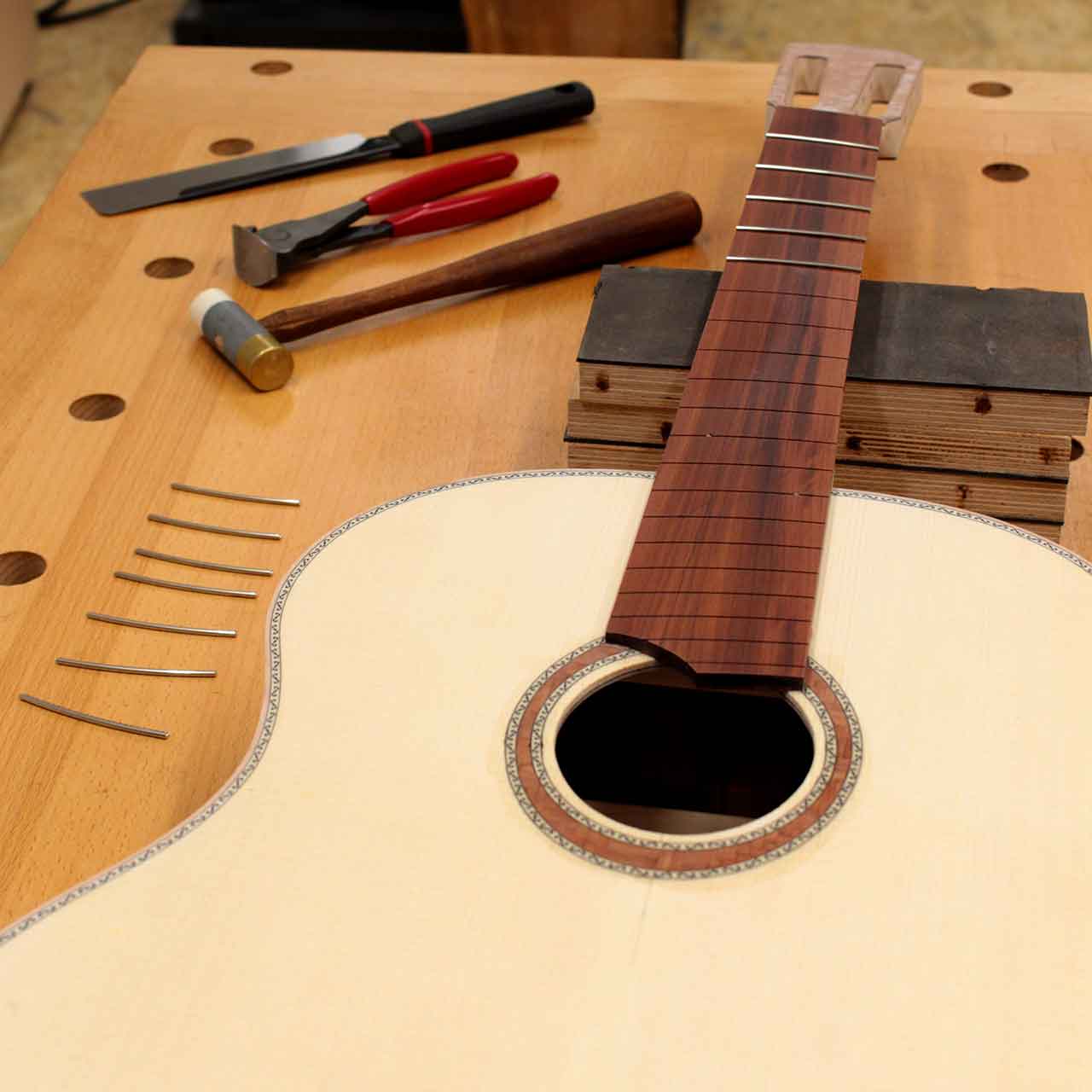
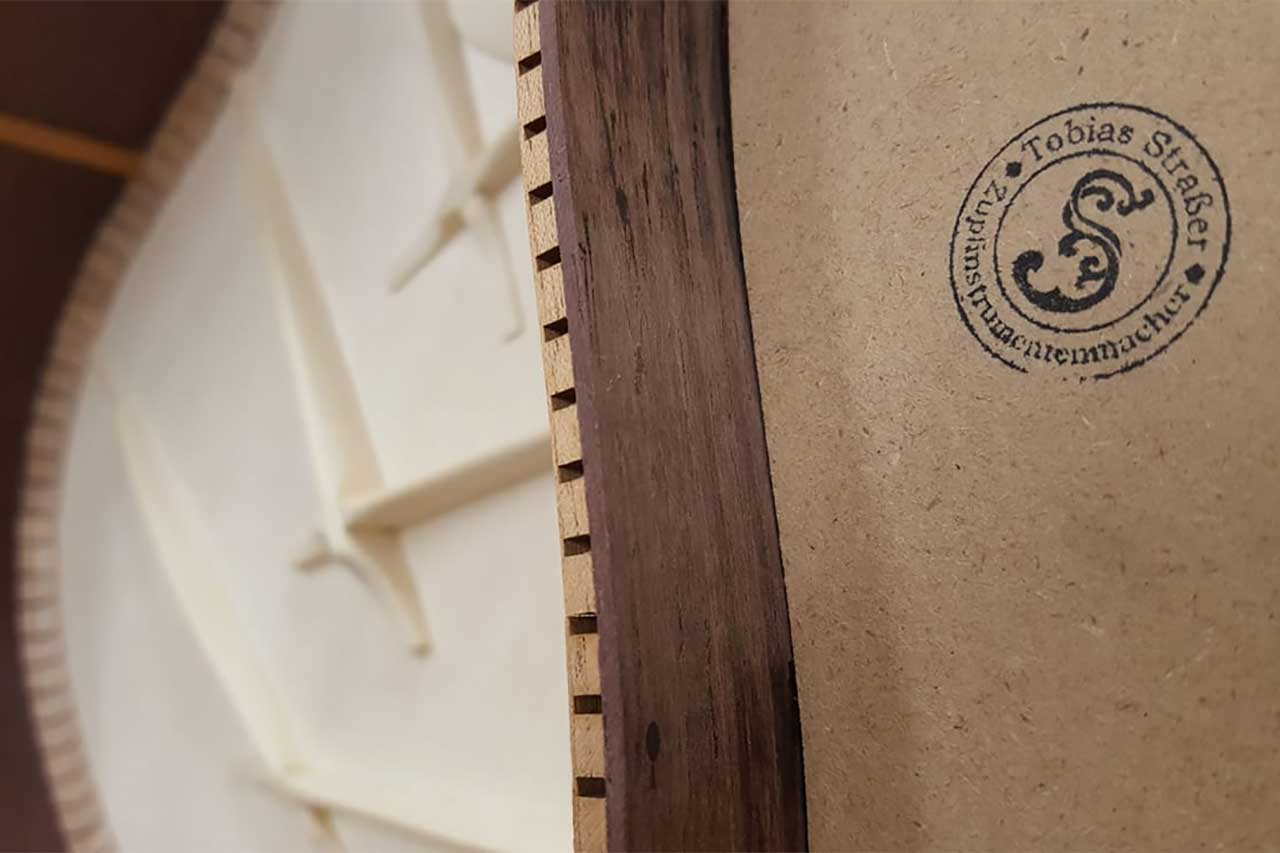
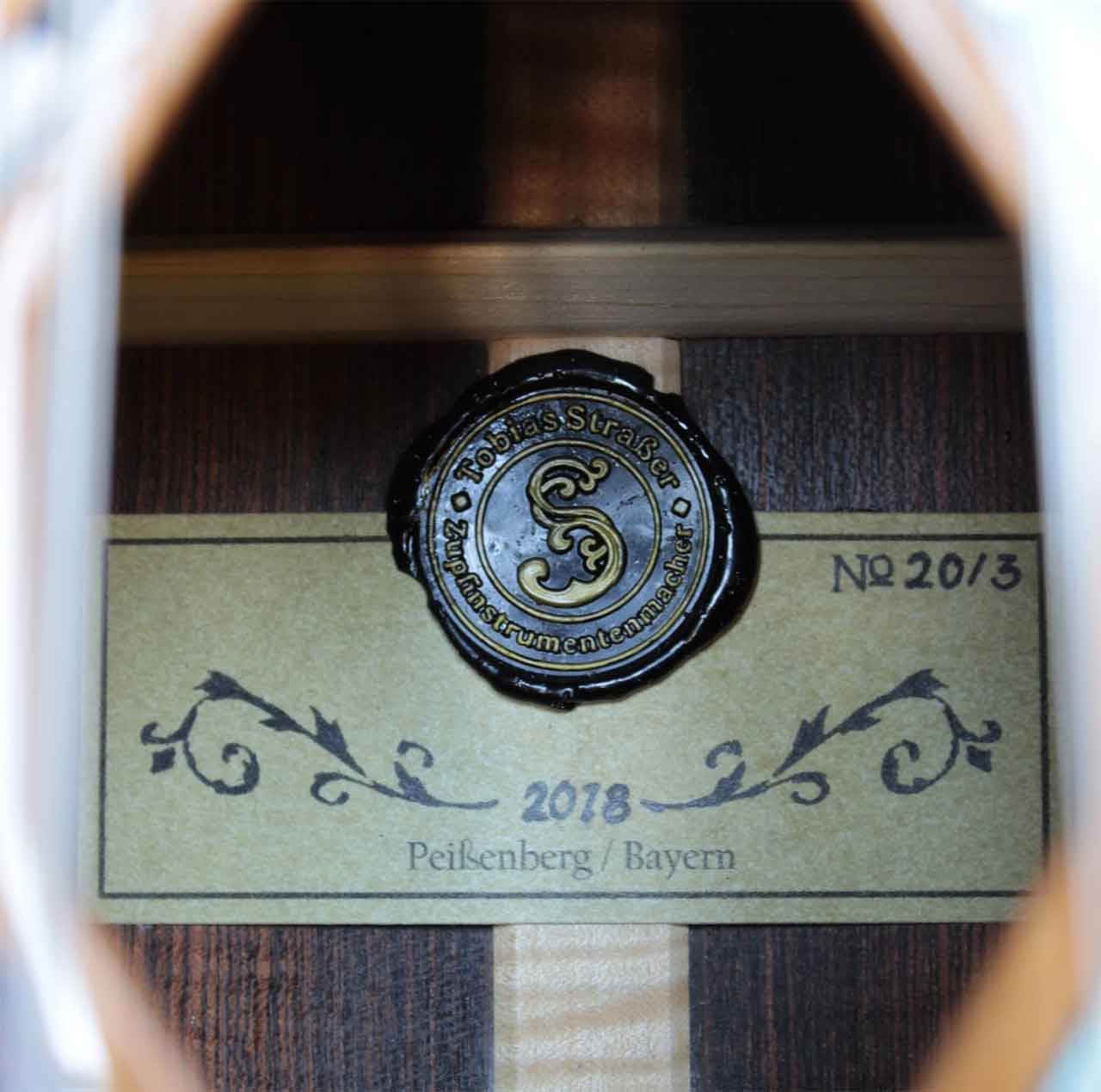
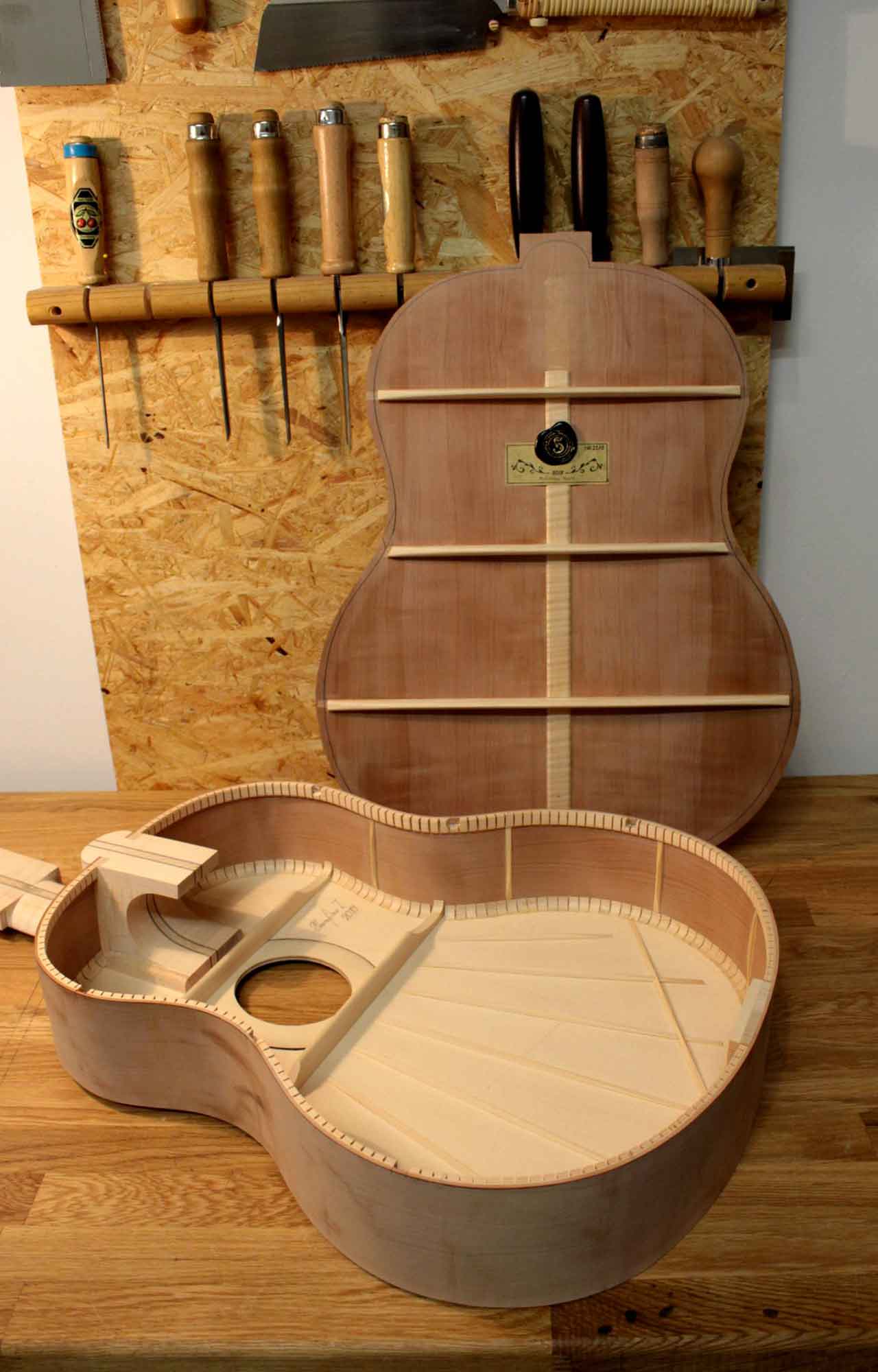
You can contact Tobias Straßer through the contact form
on his personal page on Luthiers.com here:
https://luthiers.com/listing/strasser-guitars/
We also invite you to follow him on his various social networks:
- Facebook: https://www.facebook.com/strasserguitars.de
- Instagram: https://www.instagram.com/strasserguitars/
- Youtube: https://www.youtube.com/channel/UC5YPmEFiWW8bp6ONmfhoobw/featured
- Website: https://www.strasserguitars.de
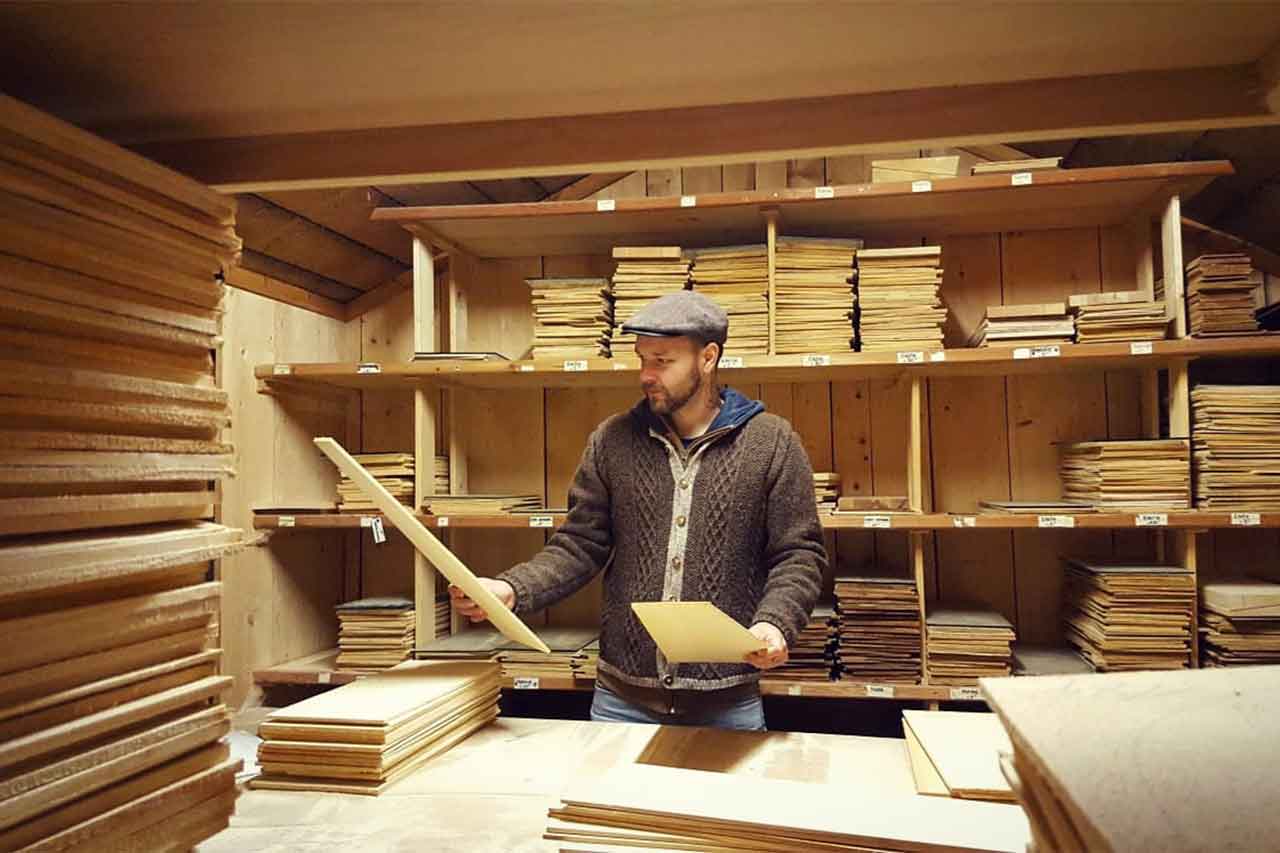
Strasser Guitars Luthier
In the coming weeks, as for others luthiers for plucked string instruments, luthiers for bowed string instruments, amps & effects makers, wood & supplies dealers, lutherie events, jobs, schools & teachers subscribers on our site, you will be able to follow our series of mini-interviews dedicated to the fascinating world of luthiers.
See you soon…
#luthiers
Subscribe to the newsletter!
Subscribe to our newsletter to follow all our news and those of our luthiers.
If you are passionate about the world of luthiers, join us!